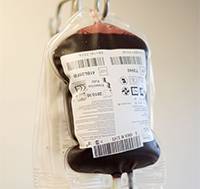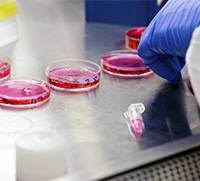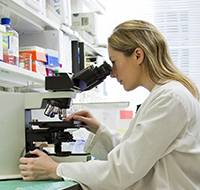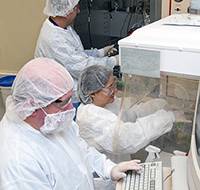Haematopoietic stem cell transplants are often the only way to treat inherited genetic disorders or cancers of blood and lymph nodes, but carry significant risks. Following transplants, patients can suffer relapse, infections or graft-versus-host disease, where immune cells in the donor blood attack the patient's body.
The BTRU in Stem Cells and Immunotherapies aimed to minimise these risks by developing techniques to identify more appropriate blood donors, remove the immune cells that attack patients but not those that fight infection, and genetically modify immune cells to target cancer cells. We developed ways to use patients' own cells in treatments, avoiding the need for transplantation altogether and potentially offering new treatments for a wide range of cancers.
Our research was organised across four research themes, which complement and overlap each other - each brought the expertise of a variety of leading scientific researchers and academic clinicians, and facilitating efficient transfer of skills between then and NHSBT.
Our research themes:

1. Improving donor selection or cellular composition of stem cell graft for transplantation
Theme Lead: Professor Stephan Beck

2. Therapeutic gene modification in malignant disorders or inherited genetic disorders
Theme Lead: Professor Amit Nathwani

3. Cellular therapies to prevent or treat post-transplant relapse
Theme Lead: Dr Claire Roddie

4. Manufacturing technology and processes for genetic modification of stem cells or T-cells for therapeutic application.
Theme Lead: Professor Adrian Thrasher
 Close
Close


